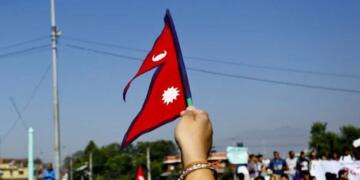If you drive past Central Delhi, you may notice that several institutions and places are named after politicians, with the Indira Gandhi National Centre for the Arts, Jawaharlal Nehru University (JNU), and Nehru Memorial Museum and Library to name a few. With gentle music in the background, you may discuss a few political things in between before switching back to your normal conversation.
However, as your car passes by India Gate, the National War Memorial, Major Dhyan Chand National Stadium, and the Netaji Subhas National Institute of Sports, your eyes will light up, and the conversation will definitely take a more inspiring turn.
Trust me, the majority of us start reminiscing and even sharing the tale of their heroic stories of valour and sacrifice. This has inspired all of us and instilled a sense of pride and patriotism in our hearts. The atmosphere gets filled with stories of bravery and sacrifice, and we all feel a renewed sense of respect for the heroes who gave their ultimate sacrifice or did great service for the country.
But this feeling of gratitude and homage unfortunately dies down as we indulge in our daily lives. We forget the fact that legends never truly die from the wounds inflicted by the enemy. Rather, when they are forgotten and faded into obscurity by people like us.
Also read: India’s diplomatic jolt knocks the Brits out of their colonial slumber
Is the political slugfest derailing the process of decolonization?
Throughout the world, politicians have a knack for picking fights over the appropriation of everything under the sun. They want to claim credit for every successful scheme, the legacy of freedom fighters or places, or widely accepted iconography, among other things. You get the point, right? Basically, every good thing must have a politician’s name written on it. It doesn’t matter whether they had any contribution whatsoever to that achievement, event, or development of the place.
As per an India TV report, there are at least 99 institutions that are named after the Nehru-Gandhi family. And it is not confined to any one particular party; only the magnitude of narcissistic traits may vary. Many state governments too have usurped places by painting places and institutions with a wide brush of their political affiliations. Normally, a change in administration results in a change in nomenclature, but this, too, remains heavily skewed towards the politicians of the day or people who appeal to them.
Moving past political connotations
It is a great disservice if we only see nomenclature in the context of politics alone. Nomenclature has a deep impact on the psyche of upcoming generations. Let me ask you a basic question. If given a choice, which of these two scenarios would any Indian prefer?
First, being called a resident of Aurangabad, named after the Islamic bigot Aurangzeb, who drew sadistic zeal from committing Jihad on innocent Hindus, Sikhs, and Jains. Second, a Chhatrapati Sambhaji Nagar resident named after the valiant warrior Chhatrapati Sambhaji.
Union Home ministry grants sanction to Maharashtra Govt to change the name of Aurangabad & Osmanabad cities in Maharashtra | These cities after state govt notification will be named as Chatrapati Sambhaji Nagar & Dharashiv respectively. pic.twitter.com/qWKuz4Jv5E
— MUMBAI NEWS (@Mumbaikhabar9) February 24, 2023
Which option do you think will develop a positive attitude towards life in the next generation? Though I have given the example of a mighty warrior, the same applies to legends in sports, the arts, real life, and our selfless soldiers.
Growing up hearing the stories of inspiration, struggling to continuously strive for success, not getting deterred by hardships, and other positive traits will yield a new inspired generation with strong will and determination to strive excellence in whatever they choose. While parenting, all of us try to imbibe the traits of legends and sons of the soil.
Also read: Exposing BBC’s new series “India: The Modi Question”
The wrong perspective will always lead us down
Recently, the Supreme Court dismissed a petition that demanded to rename cities named after Mughal invaders. Stressing the nation’s secular credentials, the two-judge bench opined that the country can’t remain a prisoner of the past.
However, rejection of this plea is not a setback, as wrong perspectives always fail to deliver intended outcomes. Political slugfests have and will always derail the intended purpose of decolonization and removing symbols of slavery, including mental slavery.
Going into the Amrit Kaal, PM Modi from the ramparts of Red Fort categorically stated that by the time India reaches its 100th year of independence, India has to break the shackles of colonisation in all forms. The Panch Pran of Amrit Kaal includes efforts to remove any trace of colonial mindset, take pride in our roots, and foster unity and a sense of duty among citizens.
There is an old adage that says that the time is always right to do what is right. So, it is now up to us: what do we as a society want to aspire to? Can we look at political nomenclature from a refreshing perspective and adopt “heroic nomenclature” to inculcate righteous traits in our next generations? Mind you, a politician or ideology can’t be one that unites us all. But it can be achieved through paying homage to those who became the epitome of bravery, skillset, or sacrifice through their selfless duty to the nation.
Also read: The New York Times has found ‘Hunter-Biden’ in India
The Way Forward: The Power of Nomenclature
Understanding the innate power of iconography and nomenclature is the first step in the journey of decolonization. The constitution makers deliberately used the terminology India,” that is, Bharat,” to dispel all the baseless doubt and sinister plan to present India as a newly formed nation state. Rather than a nation born in 1947 with politicians like Mohandas Gandhi and Jawaharlal Nehru as its guardians, Bharat is a continuing civilization.
So, a continuing civilization can’t have icons from a particular ideology, party, trait, or field, be it law, judiciary, or politics. We have to understand that the images and symbols we use to represent ourselves should be a reflection of our true values and aspirations.
The nomenclature “Bhagtiyarpur is nothing but a continuous tormenting of the psyches of the tormented citizens. There is a plethora of symbols that represent that we have not moved past the colonial past and that it has lingered with us, carrying or having some sort of pride in Mughal and British colonists. For example, the lesser-known symbol of the BCCI that has British imprints written all over it speaks volumes of the need for decolonization.
Restricting our legends, war heroes, sports icons, or artistic icons to a few places like war memorials or museums is a great disservice and holds them hostage to the political nomenclature fight. Instead, it is time that political nomenclature be junked or minimised. It should be replaced by “heroic nomenclature” so that legends remain in the hearts of all of us when we drive and hear some institutions, scholarships, schemes, places, or even villages or cities named. Legends should not be faded into obscurity; so, that their names will keep inspiring new generations and haunt our enemies, making their hatred, vileness, and weaponry futile.
Support TFI:
Support us to strengthen the ‘Right’ ideology of cultural nationalism by purchasing the best quality garments from TFI-STORE.COM




























